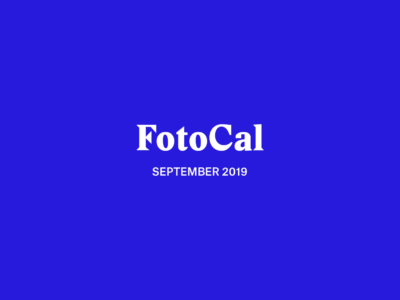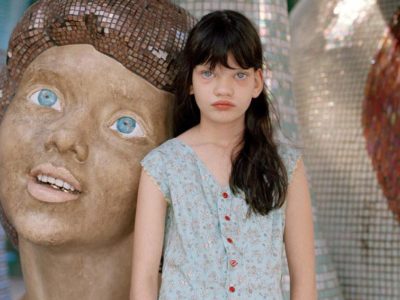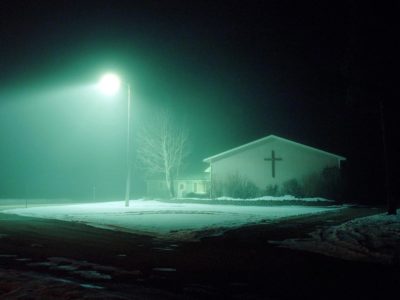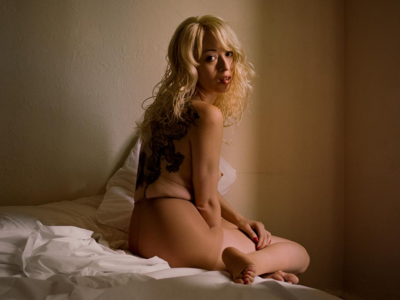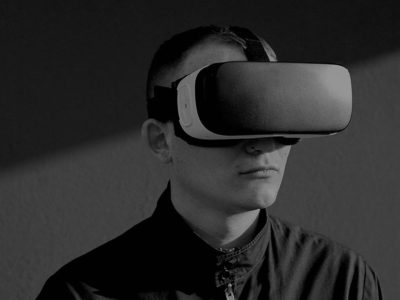Selected Works: Matt Henry
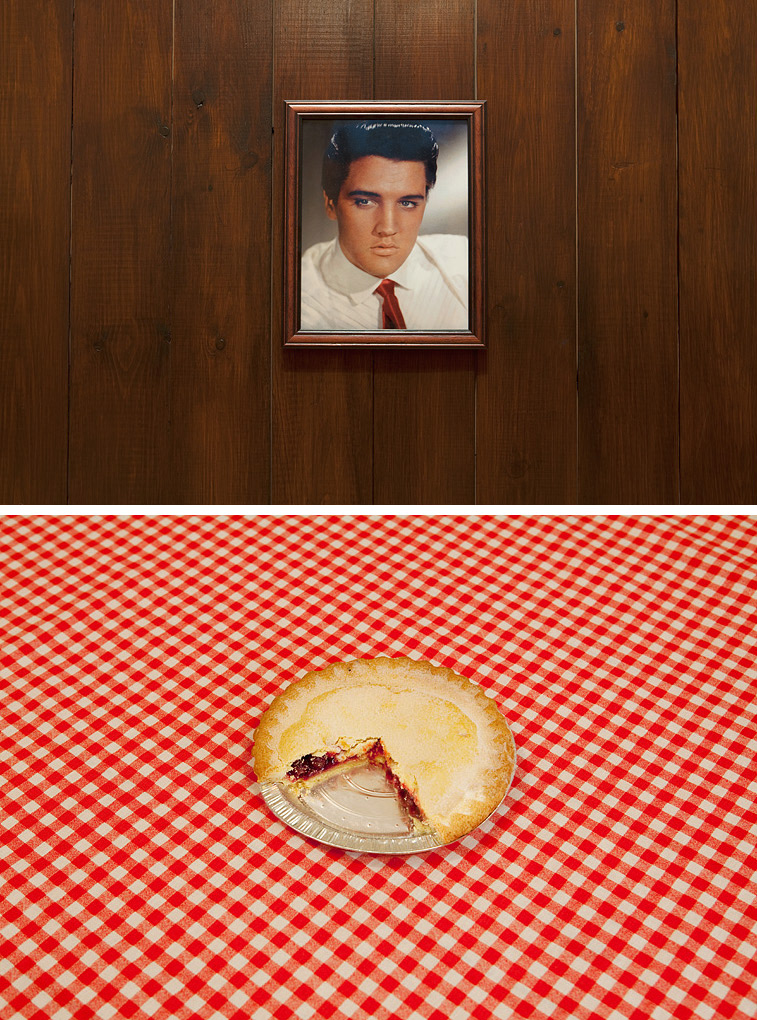
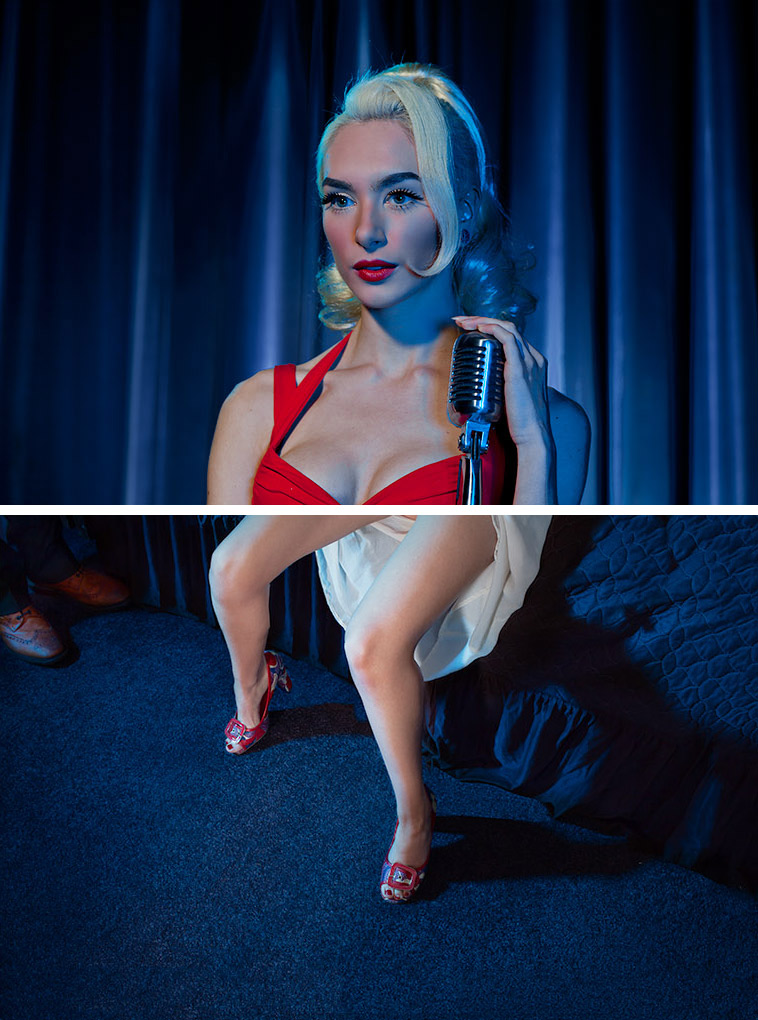
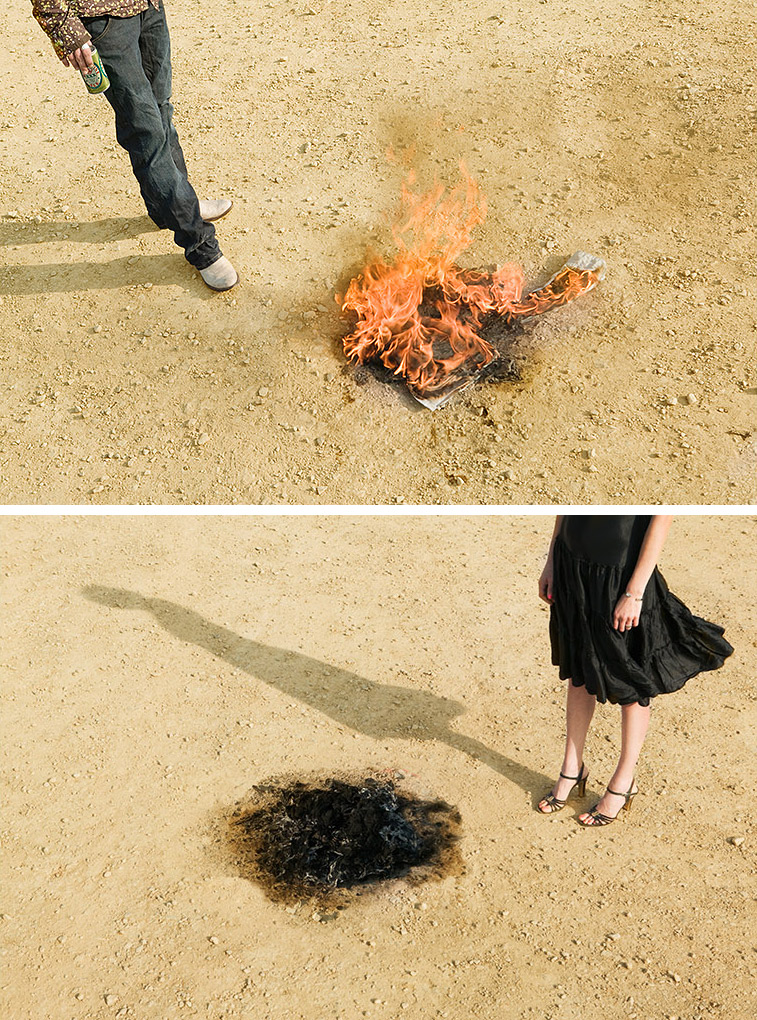
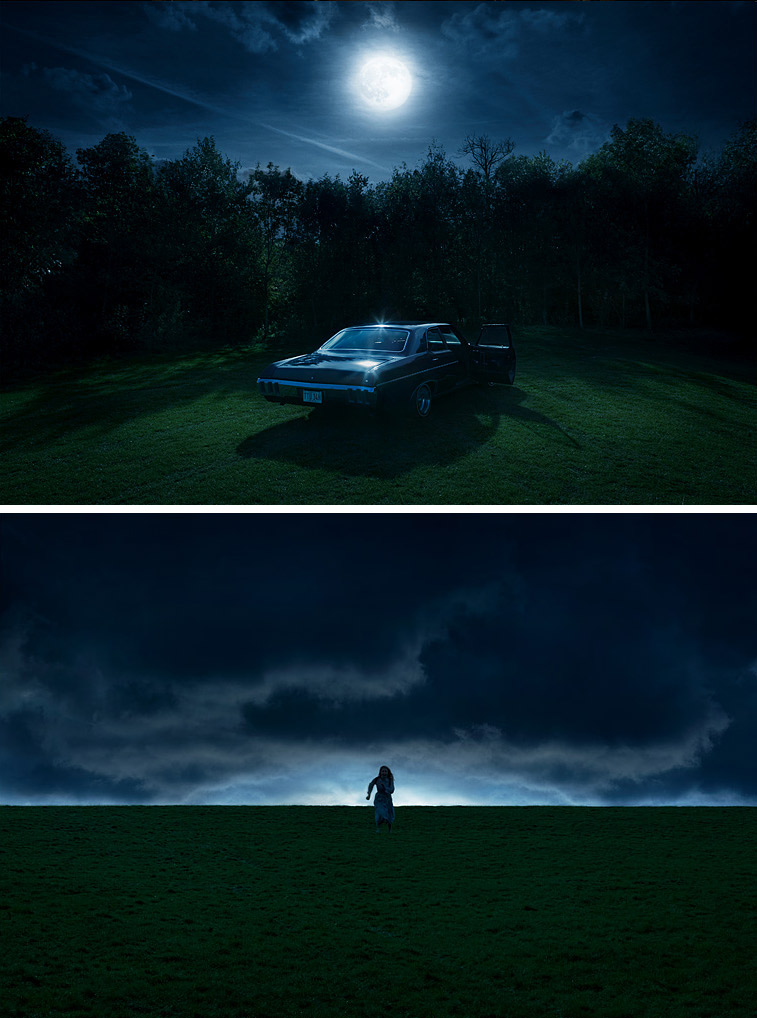
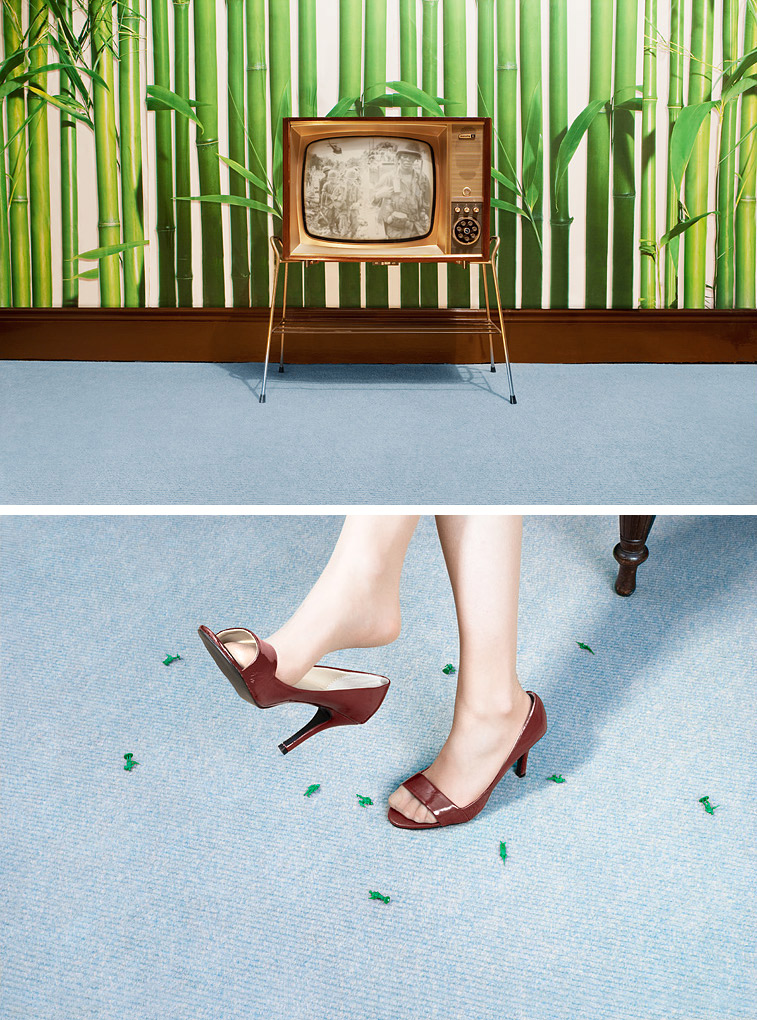
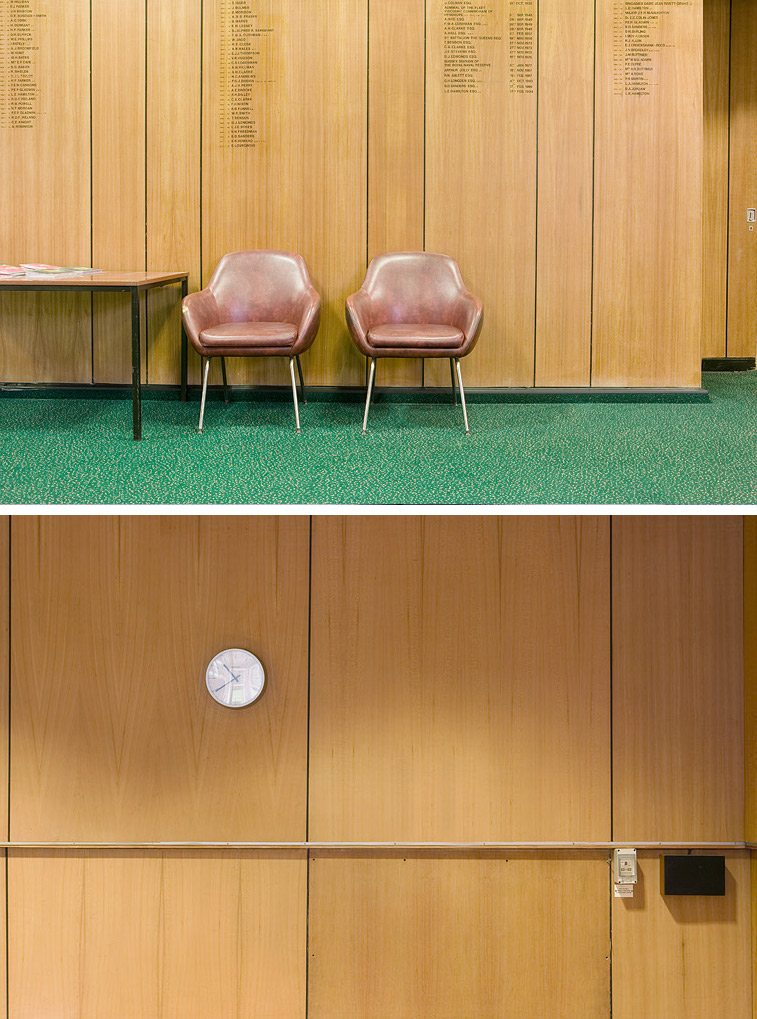
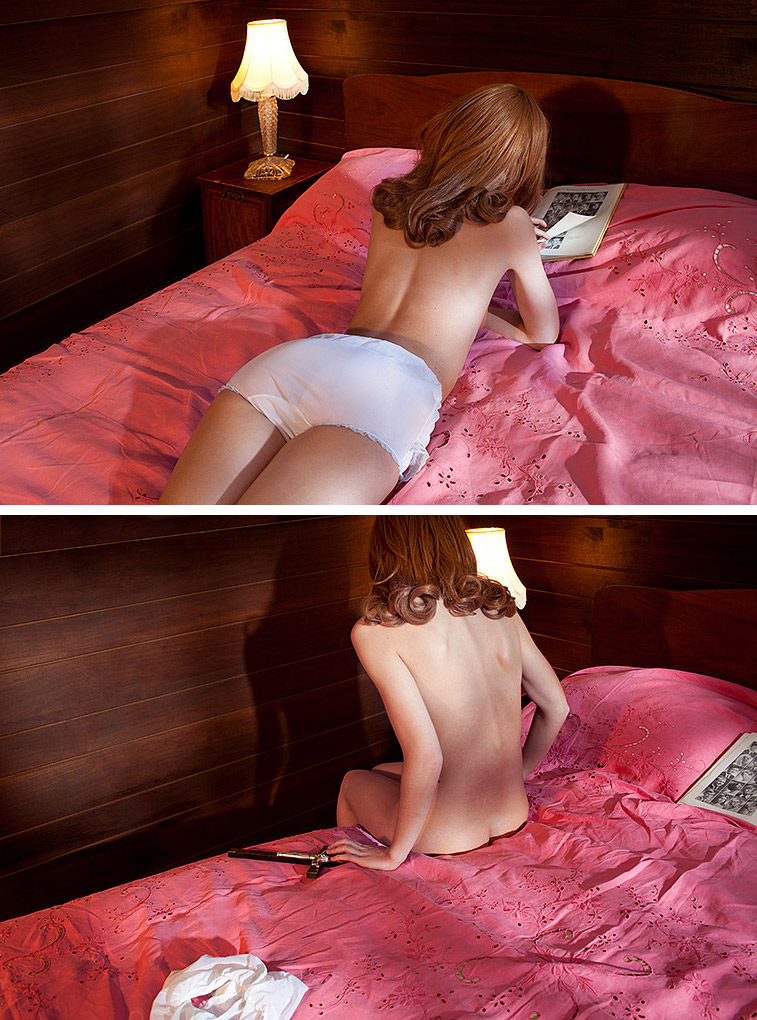
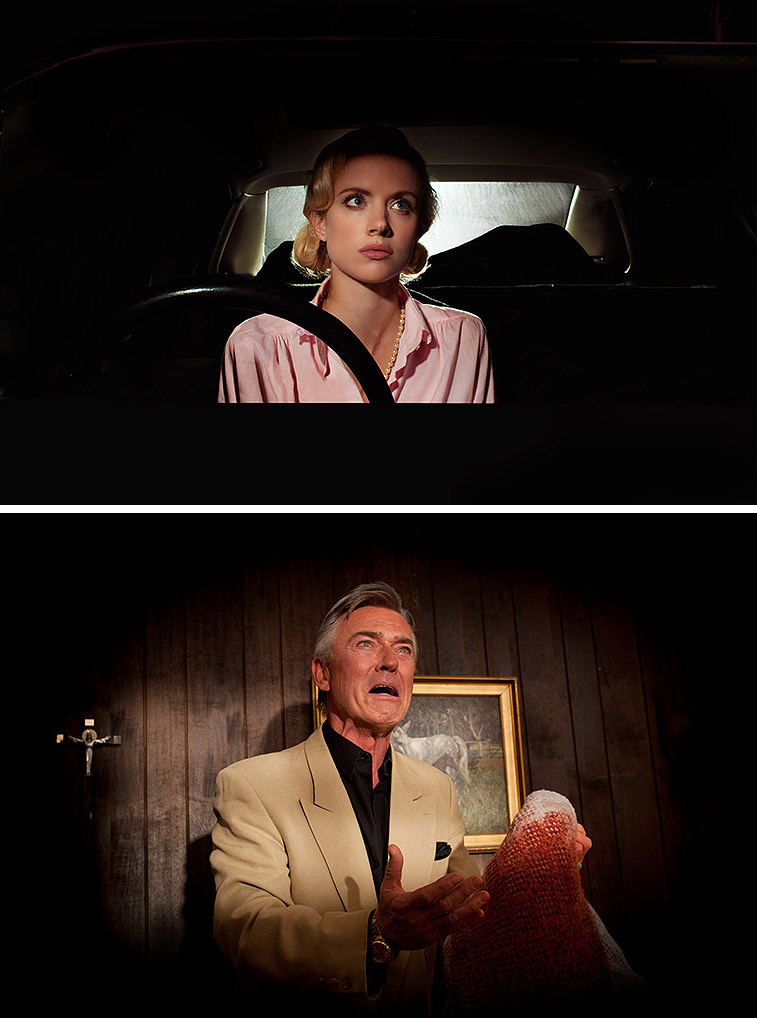
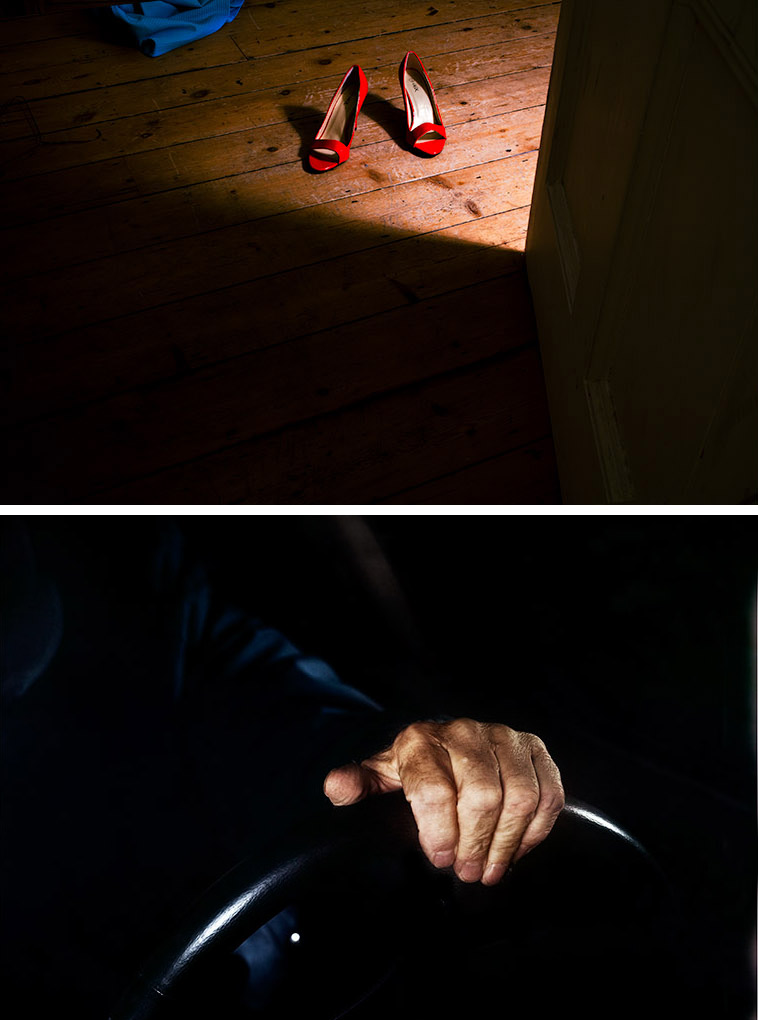
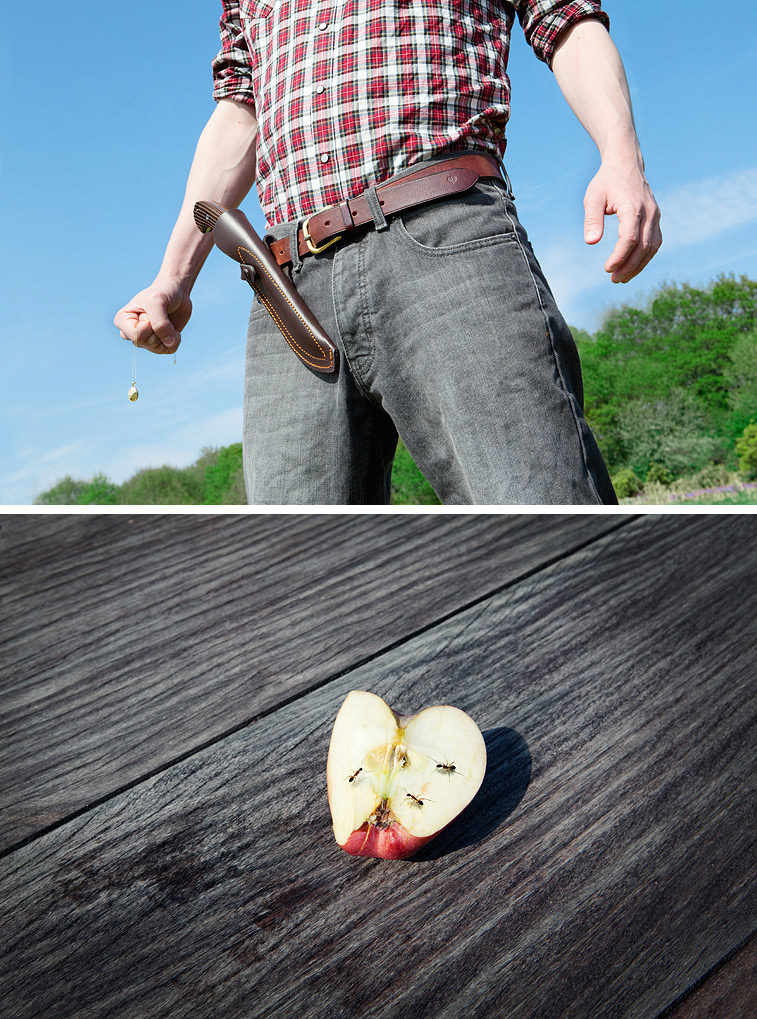
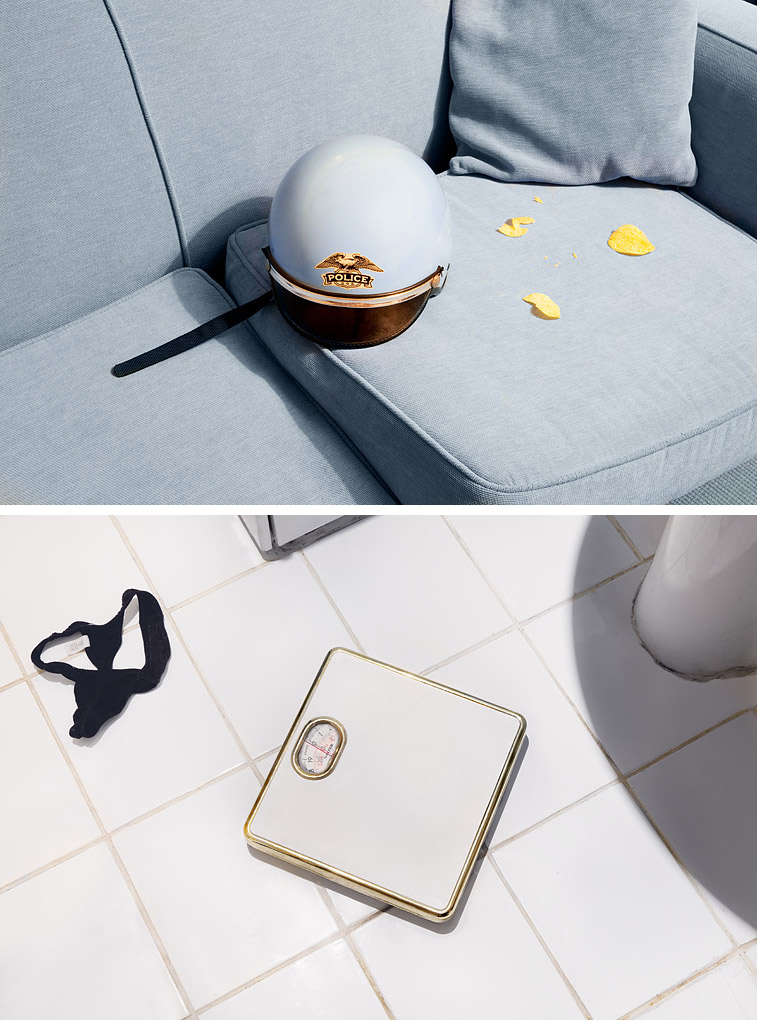
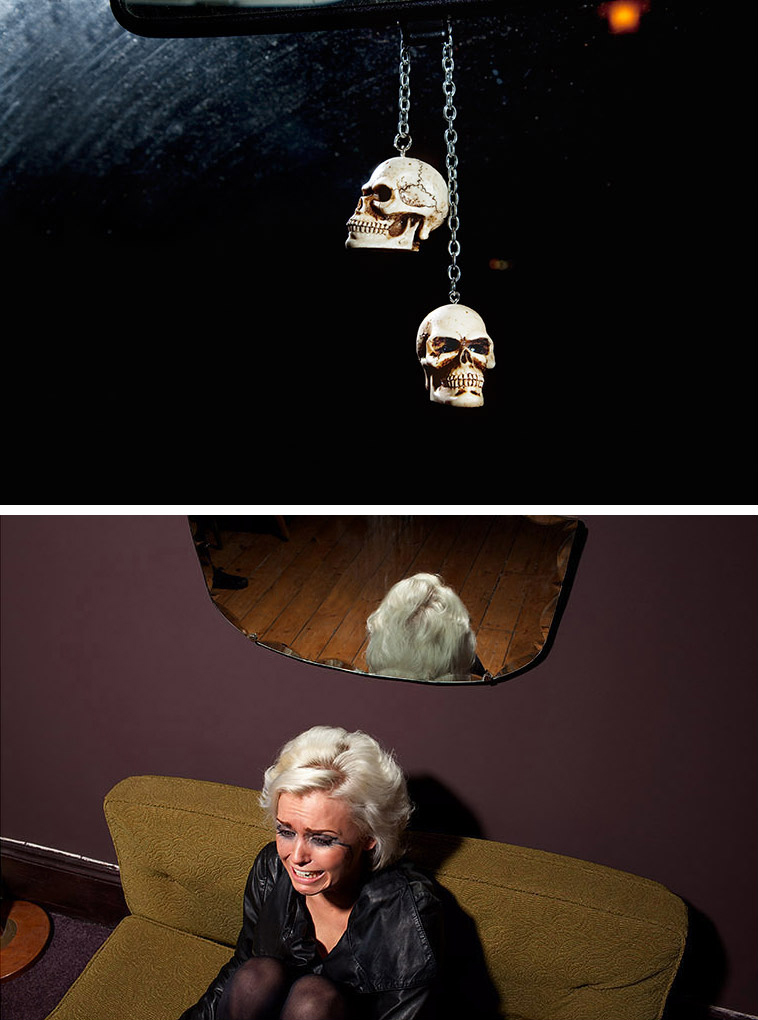
Matt Henry is a 36 year-old British photographer based in Brighton, where he runs an art gallery called One Eyed Jacks. Matt typically works with staged photography, creating visual short stories by juxtaposing two images side by side. (For this article, we have arranged the photos one above the other to adapt to our site’s layout).
Be sure to read our interview with Matt, where he shares interesting thoughts not only about his art but more generally about the current state of photography.
Hello Matt, thank you for this interview. What are your main interests as a photographer?
The usual, really: nature, love, family, sex, death. But I play with strands of utopian and dystopian thought, so you’ll always find a strong moral undercurrent throughout my work; those old modernist conceptions of good and evil, black and white. I’m interested in our internal struggles as human beings; the pursuit of goodness and our perpetual failures as we stray from the path of right.
The 1960s, rural locations, and America all appeal to me as settings where that notion of good and evil was somehow at the forefront of people’s minds. We live in a morally relativistic world now, where it feels okay to accept everyone’s point of view, no matter how insidious. And also an increasingly urban world, where as atomized cogs in a giant wheel, our own actions and thoughts become increasingly irrelevant. Life is easier, but somehow we’ve lost something very important. In the industrialized world, our moral choices just don’t have the same importance to those around us, and I think that comes a real loss to humanity.
Please share a bit about your typical process in creating one of your visual stories.
An idea generally rains down from the sky when I least expect it, and I get this surge of energy and excitement. I’m not an energetic or an excitable person, so that’s how I know I’m on to something. It’s a really great feeling, and what I live for. Sometimes these ideas have visuals, and the composition and colours are almost drawn out. Other times it’s just a concept or a story that needs turning into something. Either way the next step is to start sketching out a storyboard on paper.
If it’s just an idea, I’m thinking about how it will work over a number of images. If it’s a visual, I tend to think about how this visual could be expanded into a project, as visuals usually appear to me as single images. From here, it’s all about the logistics. What props do I need, and in what colors? Do I need locations, or is this a set build? If there are models, what type of faces are needed to tell the story?
There’s a keen cinematic feel to your work – did you ever do a short film, or played around with such idea?
I think it’s considered cinematic because it’s story-based, in a way that most photography isn’t. Photography has a legacy in the real and in the documentary that is really very ingrained. The idea of creating or staging something doesn’t have significant precedence. Even in Cindy Sherman’s pictures, we’re always talking and thinking about the artist herself, rather than being drawn into the stories she’s creating. That might be unavoidable with self-portraiture, but in general people find it difficult to suspend their disbelief when they see staged photography. Jeff Wall’s work is another example; the discussions were always about references he may or may not have made to fine art, or what it means to stage a scene.
I want people to lose themselves in a story, for it to set something off their mind, rather than thinking about me as an artist building these sets, or what their significance is in the development of photographic history. This frustrates me. Stories can have complex and ethical backdrops, but that doesn’t mean you can’t try and lose yourself in them. I just think the language of photographic fiction is in it’s early stages. It’s so long established in cinema that we look upon those images in different ways.
I may make a short film at some point, but for now I’m still in love with stills.
Mention the skill that you think is most critical in the education of a photographer.
To look at as many pictures as possible, but to look outside photographic education and history. Tumblr is a really great resource. There is so much fantastic work being made now.
I think there’s a danger with photographic education and the art establishment in general of promoting this very narrow, history-based conception of photography. No one seems to have the courage to elevate something new, so it’s all about studying the greats, or an artist who has had enough press and exhibitions to be considered worthy. The danger is the whole thing becomes self-referential and all the work starts to look the same. I do think this is the point that we’re at now.
Look to film, or literature or biology or anything. If you want to become a photographer, or an artist of any kind, go and study or get involved in another subject that will provide you with inspiration for your work. This comes from a man who has an MA in Photography, but actually much of my work is inspired by the Politics of 1960s America, which I studied in my BA in Political Theory and now study in my PhD. They’ve both been useful in their own way, but I think a secondary focus or interest is vital. And this is not to say formal education is a must. Your interest might be in comics, or wildlife, or psychology. All these things can inform your practice.
If you could change or improve one thing about the photography industry, what would it be?
I’m not sure there’s such thing as a photographic industry. It’s such a diverse field. But I will say that I think it’s a shame that our practice is so often co-opted by commercial and commodified interests such as fashion and advertising. It’s a very powerful medium and I think we should all be careful of using it to sell untruths about the world; that you have to be stick thin with a new Audi to be happy and fulfilled. I think it’s so unfortunate that most people’s daily experience of photography is through pictures that are used to undermine our essential humanity; to promote an ideal that essentially pits us all against each other.
What would you say to convince someone who never cared about photography at all to start buying photobooks and visiting exhibitions?
I wouldn’t want to convince someone of anything! I think people are drawn to different things. And I don’t think you need to buy photo books and visit exhibitions, unless that’s your inclination and you have the time and the money. There’s amazing work online that can be seen instantly and by anyone.
Describe your photographic diet.
My focus is usually on making work, so I just don’t have time to keep up with everything that’s going on. I know people that do, and you can get lost in it. I don’t think I’ve ever been very good at being on trend. With fashion, or music or anything. I think I’m too lost in my own thoughts, or just too lazy to bother. There are a few blogs I will dip into from time to time and some things that appear on my social media feed but time out from making work is usually dedicated to movies or literature.
Do you have any other passion besides photography?
Films, hiking, living in the woods, growing my own vegetables (badly), the 1960s, classic American novels about the great outdoors, animals of any kind!
Choose your #threewordsforphotography.
Concentration. Peace. Frustration.
Keep looking...
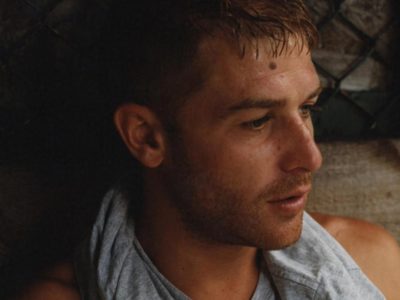
Folly — Jamie E Murray Makes Work Inspired by Conversations with Ex-Prisoners
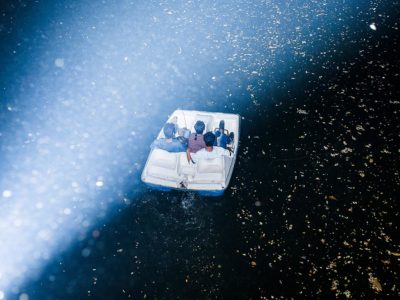
Niklas Grapatin Turns the Dust in Dhaka’s Air into Magic
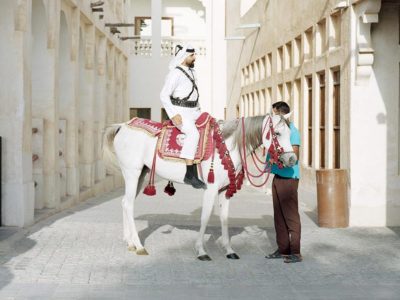
Land of Plenty — Marco Barbieri Photographs Doha as a Still and Empty City
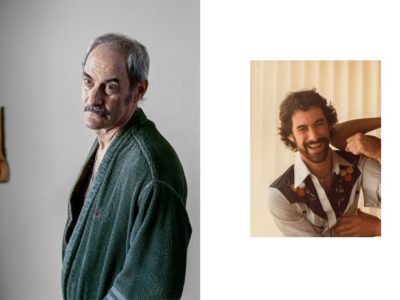
Rick Schatzberg Juxtaposes Photos of His Friends When They Were Young and Now in Their 60s
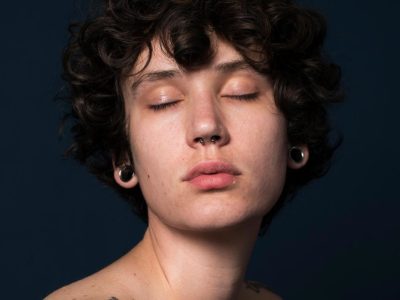
State of Identity — Milan Gies Portrays Young People Transitioning Gender
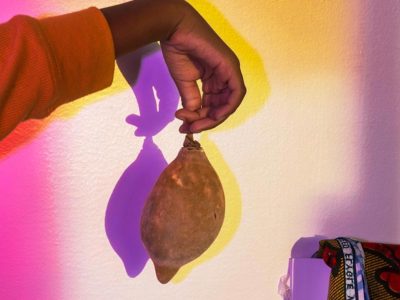
FotoFirst — Juan Orrantia’s Color-Rich Photos Visually Interpret His Experience of South Africa
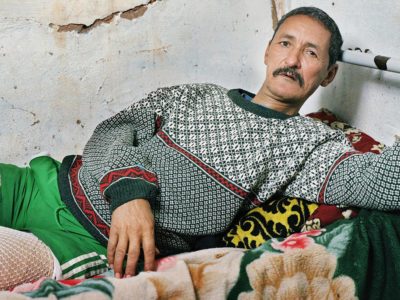
Bitter Sweet Soft — Bernat Millet Photographs the Saharawi People and Their Life in Refugee Camps
